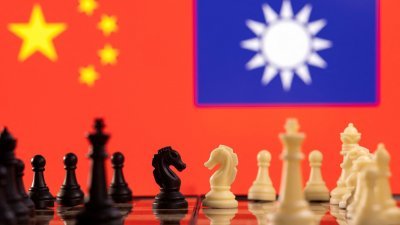下周五(10月13日),首相兼财政部长安华将在国会提呈《2024年财政预算案》。尽管内阁改组的消息一直甚嚣尘上,但是财政部长易主可能性不高。反而,内阁可能会迎来第二财政部长的任命,人选会是巫统强人佐哈里抑或是希盟国会议员则是两个政治联盟支持者所关注的问题。
我曾在《巫统强人是第二财长人选?》 一文中探讨第二财长人选中国阵支持者寄予厚望的佐哈里。随著6州州选和数场补选相继落幕,团结政府的合作模式也从磨合过渡到竞合,也朝著“合久必分,分久必合”的方向演进。
综观政治和宏观经济因素,政治阻力可谓趋向缓和,经济依然遭受通货膨胀居高不下和马币持续走软。这将使到团结政府没有太大的操作空间,唯有采取“开源节流”的方案。
开源方面,政府为了增加收入会延续今年初财案“罗宾汉”财案。正如我在《团结政府财案料有惊无喜》一文中所提及,落实消费税是一项艰巨的政治挑战,当时的政治氛围并不容许重启消费税。
财政预算案中的税收政策往往是最令人关注的因素之一。迄今,民众和商家对重启消费税的看法依然出现分歧,有人认为消费税更透明;有人则担忧消费税会加剧通货膨胀。但是,只要消费税的初始税率低于6%,可算是一种折衷怀柔的政策。这样做一来可以让人民有机会慢慢适应,二来也不会给借口无良商家坐地起价,加剧通货膨胀。另一边厢,消费税不该有免税类别,这样才符合多花费,多缴税的原则。
除了消费税,政府在不得已的情况下可能提高企业和富人的税率。若提高税率,政府就必须确保可为企业提供更好的发展便利、奖励和简化行政程序,以便让企业和富人可以与长远的经济发展步伐一致。譬如,政府可以推出针对性奖励符合环境、社会和治理(ESG)范畴的企业,以鼓励更多企业朝著相同方向前进。
另外,政府可能推出资本利得税,这对中小型企业领域的并购和发展首当其冲。由于中小型企业对国内生产总值的贡献超过1/3,再加上国内约97%的企业是中小型企业,因此政府不应该仓促落实这项税务。仓促推行资本利得税将抑制疫情后萌芽的中小型企业长期成长。
至于节流方面,政府可能减少各项对所有人民的补贴,转为针对性补贴。政府这样做一来可以把资源更有效地帮助弱势和低收入群体,确保他们不会被排除在国家经济发展的路上。二来,政府也可以杜绝补贴被滥用或被外国人享有。
发展开销
财案的另一项重点是发展开销的占比。自2013年开始,财案的发展开销占比就从约17%增长至25%。这一趋势反映了政府对基础设施建设和长期经济增长的支持,这些都是可以带来积极效应的。
首先,增加发展开销的比率有望促进经济增长。基础设施建设、科技创新和教育等领域的资本支出可以增加生产力、提高劳动力素质,从而为经济创造更多增长机会,也有助于使大马在全球市场上更具竞争力。这些投资不仅能够短期内刺激需求,还能够长期推动供应侧改革和产出的提高。
其次,提高发展开销比率可以增加就业机会。基础设施项目通常需要大量的劳动力,包括建筑工人、工程师和技术人员。这将有助于减轻失业率问题,提高家庭收入水平,进而刺激消费,为经济增长注入动力。
然而,发展开销比率提高也伴随著一些挑战和风险。如政府需确保这些资本支出用于高效和透明的项目,防止浪费和腐败。
从股市投资的角度来看,以下是一些可能受惠的领域和相关公司。无论如何,个人的投资决策都须基于了解自身可承担的风险和充分的研究与专业咨询,本文仅为信息分享而非投资建议。
1.可再生能源:随著对可再生能源的需求增加,相关领域公司如专艺资源PA和Solarvest等可能受益。举例而言,前者除了参与纳斯达克上市First Solar太阳能光伏组件的生产,也为购买太阳能发电设备的客户提供资金支持。后者则参与太阳能工程、采购、建设、营运和维修。
2.数码和电子服务:随著数码化基础设施和项目的开发与实施,相关领域公司如:推动区块链和Web 3.0技术的MYEG公司、数码媒体数字集团(Catcha Digital) 、涉及数据中心运营的杨忠礼电力、提供数码基础建设服务和方案的ITMAX公司,都有可能从中受惠。
3.房地产开发:房地产开发商可能会受益于基础设施建设和经济特区如柔佛依斯干达经济特区的发展。这些地区可能会成为未来商业和住宅项目的热点。
4.基础建设:在基础设施发展上,除了夺标的大集团外,我们别忘了打桩和提供地质仪器监测的公司也可从中受益,其中值得关注的有打桩公司亿钢控股和岩土仪器服务公司Glostrext 。
最终,财政预算案到底是甜滋滋奶茶还是苦涩咖啡,必须以长远经济发展为前提,即政府在政治和经济的交织中需要找到一种平衡。少糖的财政预算案旨在支持长期经济发展,避免大量补贴导致高国债,难以维持。
政府需要继续聚焦经济的发展,以制定明智的财政政策,推动国家繁荣和让全民享有可持续发展,而非一次性的甜头而已。基于大马得天独厚,也处于中美贸易战的奇妙时刻,我们可以放眼苦尽甘来的未来,而不是过于短视地要求眼前的利益。
郑荣信《2024年财案前瞻及投资契机》英文版:Budget 2024 and Investment Opportunities
Next Friday (13th October), Prime Minister and Finance Minister Anwar Ibrahim is set to present the Budget 2024 in the Parliament. Despite the ongoing rumors of a cabinet reshuffle, a change in the Finance Minister position is unlikely. Instead, the cabinet may witness the appointment of a second Finance Minister, a matter of concern for supporters of both the UMNO and Pakatan Harapan political alliances.
I previously explored the high hopes placed on UMNO's strongman, Johari Abdul Ghani as the second Finance Minister candidate in "Would UMNO's Strongman be the Second Finance Minister?" With the conclusion of six state elections and several by-elections, the unity government's cooperative mode has evolved into co-opetition, heading towards the direction of "a long union must be divided, and a long separation must be united".
Considering political and macroeconomic factors, political resistance appears to be easing, while the economy continues to grapple with persistent high inflation and a weakening ringgit. This leaves the unity government with limited room for maneuver, necessitating a "increase income and decrease expenditure" approach.
The government is likely to continue the "Robinhood" budget policy introduced earlier this year to boost income. As mentioned in my previous article "Little to Cheer in the Unity Government's Budget" implementing a goods and services tax (GST) is a formidable political challenge, given the prevailing political climate that does not permit a reintroduction of such tax.
Taxation policies within the fiscal budget are often a major concern. To date, there are diverging opinions among the public and businesses regarding the reintroduction of GST, with some seeing it as a transparent approach, while others worry about exacerbating inflation. However, as long as the initial GST rate remains below 6%, it can be considered a compromise. This approach allows the public to have time to adjust gradually and prevents unscrupulous businesses from hiking prices, which would contribute to inflation. Moreover, there should be no exemption list for GST, aligning with the principle of more spending equating to more taxes paid.
In addition to GST, the government may need to increase tax rates for corporations and the wealthy as a last resort. If tax rates are raised, the government must ensure that it can offer better development incentives, rewards, and simplified administrative processes to keep businesses and the wealthy aligned with long-term economic growth. For instance, the government could introduce targeted incentives for companies that align with environmental, social, and governance (ESG) criteria, encouraging more businesses to move in the same direction.
Furthermore, the government may consider introducing a capital gains tax, which could significantly impact mergers and acquisitions in the small and medium-sized enterprises (SMEs) sector. Given that SMEs contribute over one-third of the domestic gross domestic product and approximately 97% of businesses fall into this category, implementing this tax hastily could stifle the long-term growth of budding SMEs after the pandemic.
Regarding cost-saving, the government may reduce subsidies that benefit the entire population and shift towards targeted subsidies. This approach ensures that resources are used more efficiently to assist the vulnerable and low-income groups, preventing them from being excluded from the path of national economic development. Additionally, this prevents subsidies from being abused or enjoyed by foreign nationals.
Development Expenditure
Another crucial aspect of the budget is the allocation of development expenditure. Since 2013, the share of development spending in the budget has increased from approximately 17% to 25%. This trend indicates that the government's support for infrastructure development and long-term economic growth, both of which can have positive effects.
Firstly, increasing the proportion of development expenditure is expected to stimulate economic growth. Development expenditure in areas such as infrastructure construction, technological innovation, and education can enhance productivity, improve the quality of the workforce, create more growth opportunities for the economy, and enhance Malaysia's competitiveness in the global market. These investments not only stimulate demand in the short term but also drive supply-side reforms and increased output in the long term.
Secondly, raising the development expenditure ratio can create more employment opportunities. Infrastructure projects typically require a significant workforce, including construction workers, engineers, and technicians. This will help alleviate the issue of unemployment, increase household income levels, stimulate consumption, and inject momentum into economic growth.
However, an increase in the development expenditure ratio also comes with challenges and risks. The government needs to ensure that these capital expenditures are used for efficient and transparent projects to prevent waste and corruption.
From the perspective of stock market investment, here are some sectors and related companies that could potentially benefit. However, individual investment decisions should be based on an understanding of one's risk tolerance and thorough research, along with professional advice. This article is for informational purposes only and not investment advice.
Renewable Energy: With increasing demand for renewable energy, companies in related sectors such as PA Resources and Solarvest may benefit. For example, the former is involved in the production of solar photovoltaic components listed on the Nasdaq by First Solar, in addition to providing financial support to customers purchasing solar power generation equipment. The latter is involved in solar projects, procurement, construction, operation, and maintenance.
Digital Services: As digital infrastructure and projects develop and are implemented, companies in related sectors such as MYEG, which promotes blockchain and Web 3.0 technology, Catcha Digital, an digital media group, YTL Power, which is involved in data center operations, and ITMAX, which provides digital infrastructure services and solutions, may all stand to benefit.
Real Estate Development: Real estate developers may benefit from infrastructure development and the development of economic zones like the Iskandar Malaysia Economic Zone in Johor. These areas could become hotspots for future commercial and residential projects.
Infrastructure: For infrastructure development, besides the major groups that secure contracts, we should not forget about companies involved in piling and geotechnical instrument monitoring. Notable companies in this regard include piling company Econpile Holdings and geological instrument services company Glostrext.
Ultimately, whether the budget is a sweet milk tea or a bitter coffee, it must be based on long-term economic development, where the government, amid the interplay of politics and economics, finds a balance. A low-sugar fiscal budget aims to support long-term economic development and avoid excessive subsidies leading to high national debt that becomes difficult to sustain.
The government needs to continue focusing on economic development to formulate prudent fiscal policies that promote national prosperity and sustainable development for all, rather than short-term gains. Given Malaysia's unique point and the interesting times of the U.S.-China trade war, we can look to a future of bitter to sweet rewards instead of demanding immediate benefits with myopic vision.
要看最快最熱資訊,請來Follow我們 《東方日報》WhatsApp Channel.


















